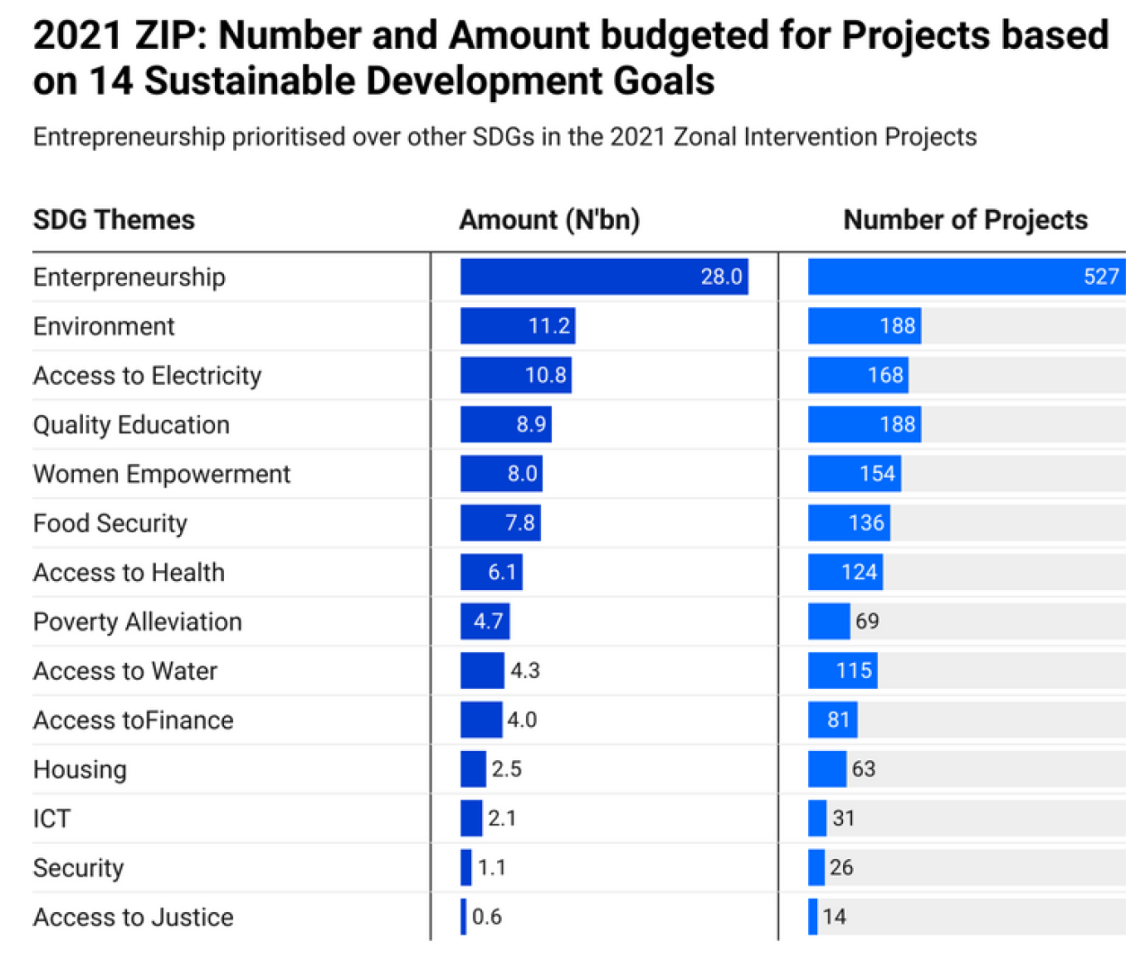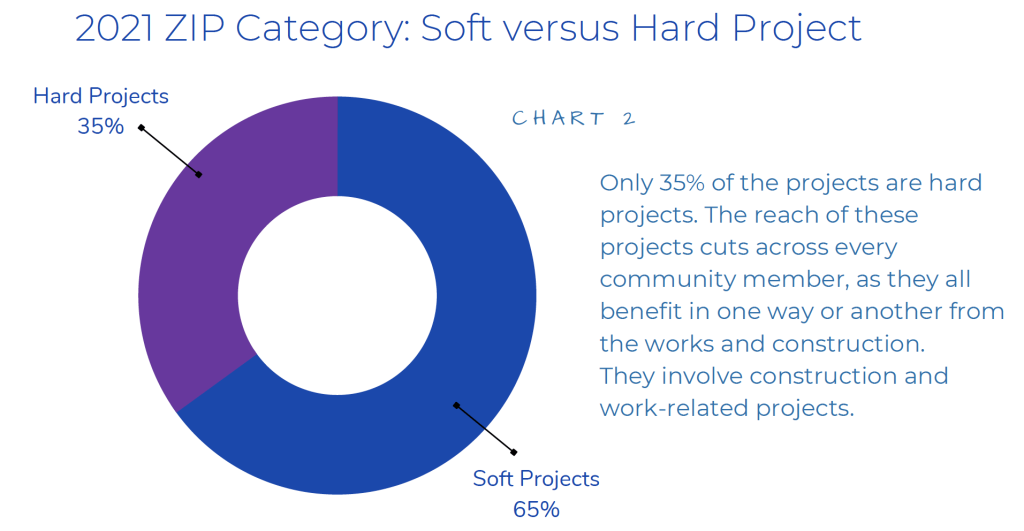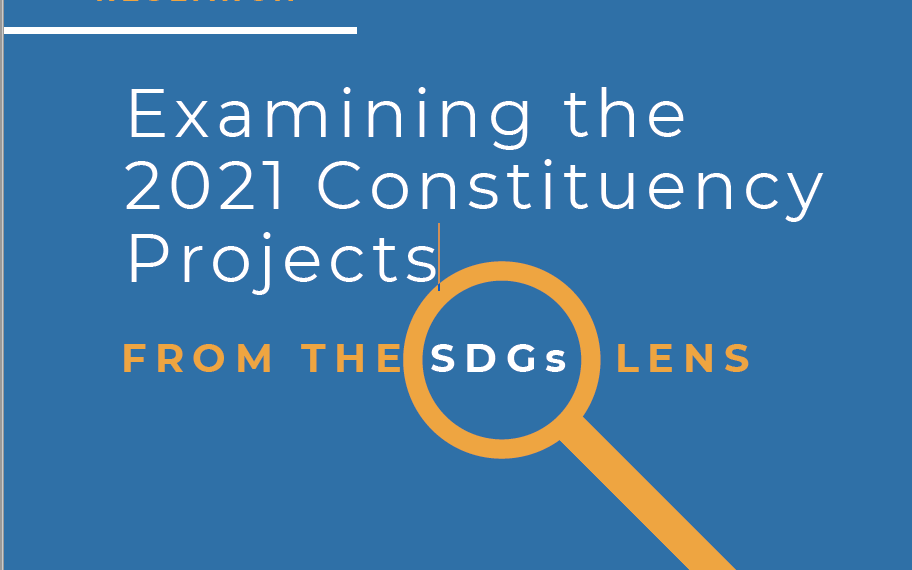As the federal executive arm through its ministries, departments and agencies prepares the 2022 budget, Dataphyte, a programme of the Interactive Initiative for Social Impact conducted an analysis of the 2021 zonal intervention projects (ZIPs) in order to assess the viability of the ZIPs and to use the outcome to demand reforms or a total scrap of the ZIP as an appendage budget to the country’s fiscal document.
Zonal Intervention Projects (ZIPs) were introduced in 1999 during the Obasanjo led administration. ZIP, otherwise called constituency projects, are projects executed by the Federal ministries, departments and agencies (MDAs) based on the submission of the members of the federal legislature at both chambers of the national assembly.
Despite the huge budgetary commitments to the projects, various social accountability initiatives including Tracka, UDEME, Follow the Money, Budeshi, and Constrack has reported myriads of untraceable projects, abandoned projects, uncompleted projects, poorly implemented projects, and so on.
Following these observations, Dataphyte carried out a comparative analysis of hard projects (infrastructure, works and construction) and soft projects (training, distribution of equipment, gifting of goods, and cash handouts) in the 2021 zonal intervention budget document.
The aim of the comparative analysis was to appraise in real terms how the 2021 ZIPs met the underlying goals of providing grassroots empowerment interventions or of supplementing infrastructural development to underserved communities across the country.
Dataphyte analysis revealed that the 2021 Zonal Intervention Projects had heavy provisions for projects that have little or no sustainable impact on the community. Also, the document reflected that the sponsored projects clearly lack inclusion in the choice of their beneficiaries.
An analysis of the 1,884 projects in the 2021 ZIP shows that 65 per cent of these projects can be categorised as soft projects. These projects include training, cash grants, and goods and supplies. Soft projects are so-called because the outputs or outcomes are intangible or transient in value to individual beneficiaries or communities. Besides, such projects satisfy a few individuals, who are largely linked to the politicians doling out the ‘empowerment’ benefits, rather than the general populace who would have benefited equally from infrastructure projects.

Based on project categories, a total of ₦64.78 billion out of the allocated N100 billion will be spent on soft projects. This means that more than 3 out of every 5 Zonal Intervention Projects approved by the federal legislature for the year 2021 are soft projects. The implication of this is that 65 per cent of the projects do not benefit members of the communities equally, as capital projects do.

Dataphyte’s program lead, Charles Mba further described the problem saying the soft projects are challenging to track, therefore it is difficult to measure the impact of those soft projects across the constituencies of the lawmakers. He added that soft projects by nature totally defeat the purpose of the zonal interventions and lend disservice to the intended investments in the grassroots.
Joshua Olufemi, Founder of Interactive Initiative for Social Impact, lamented that the federal government has spent trillions of naira to alleviate infrastructural gaps at the grassroots without visible impact on the populace. He recommended that needs assessment should be a compulsory prerequisite for appropriating constituency projects. He added that lawmakers should consult citizens before they conceive ZIPs. Also, he proposed that implementing agencies within the executive arm should only request finance for projects they can complete.
You can download the report here




